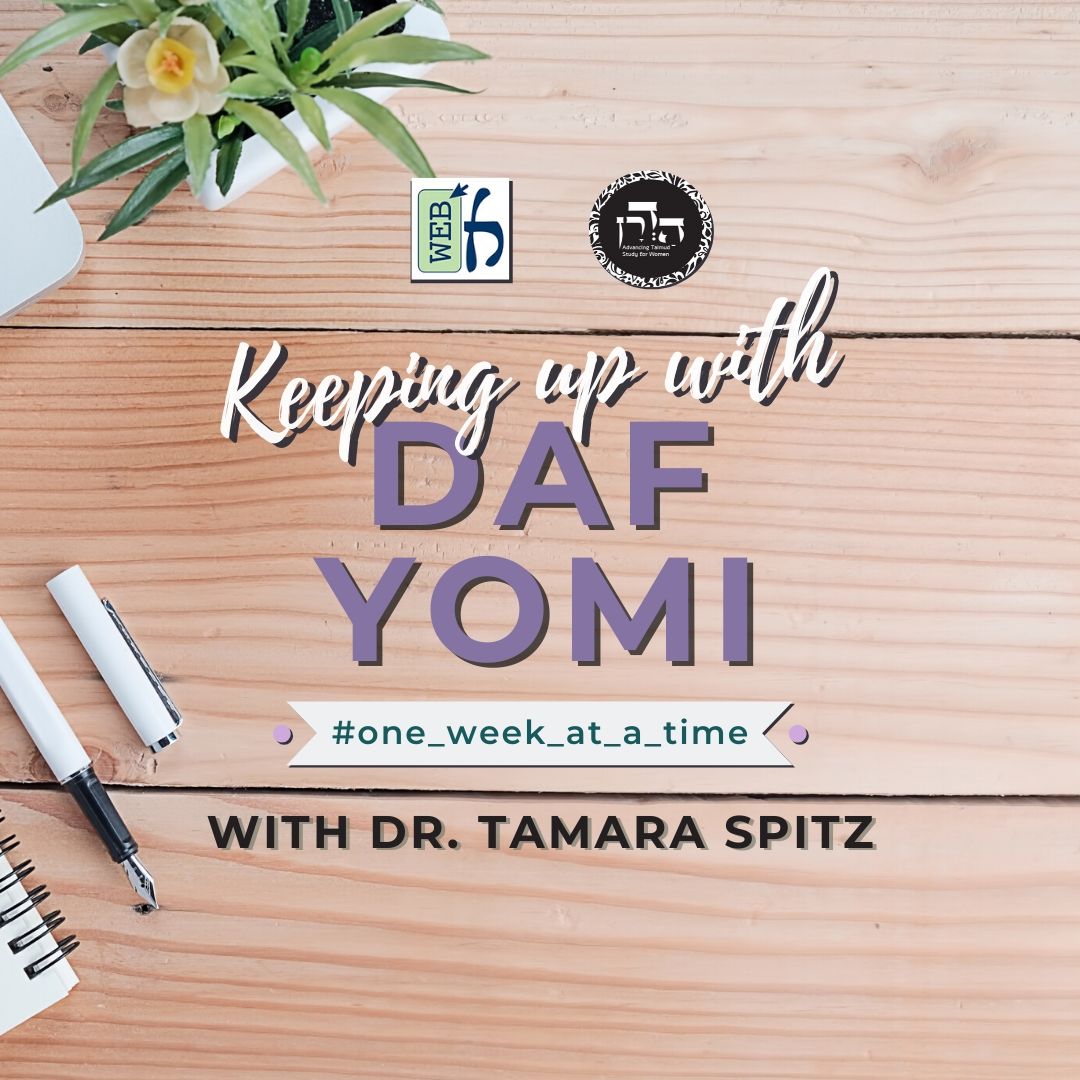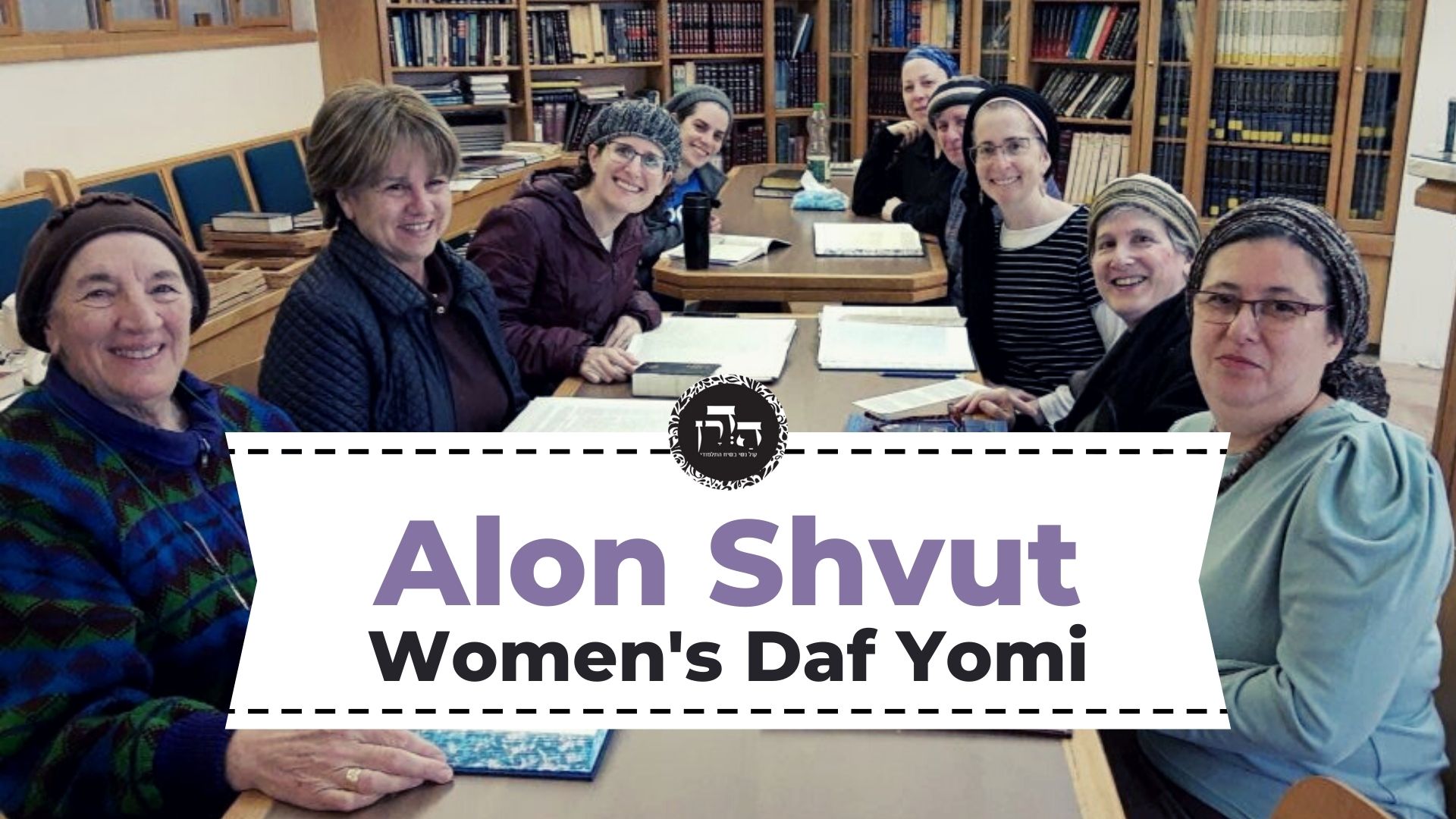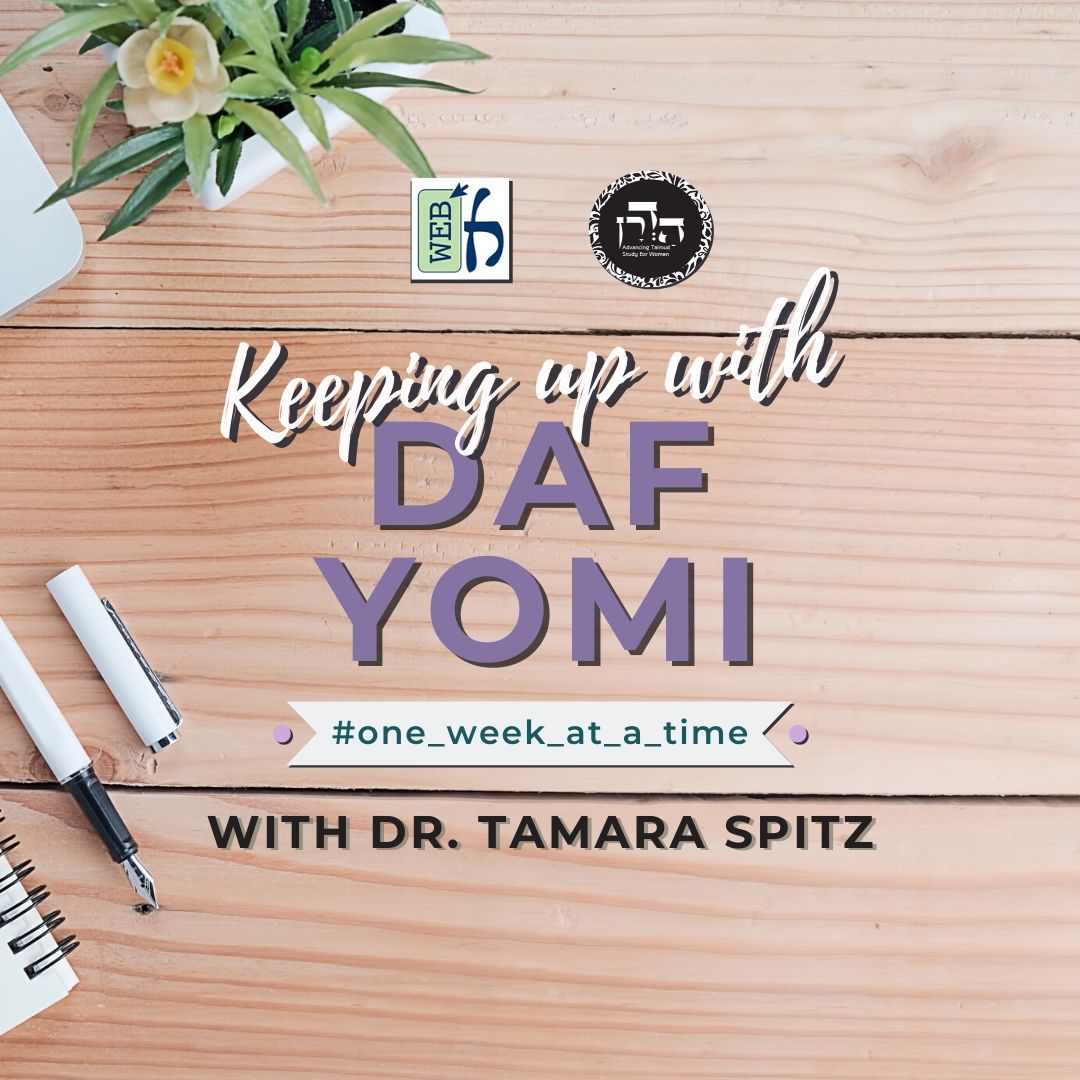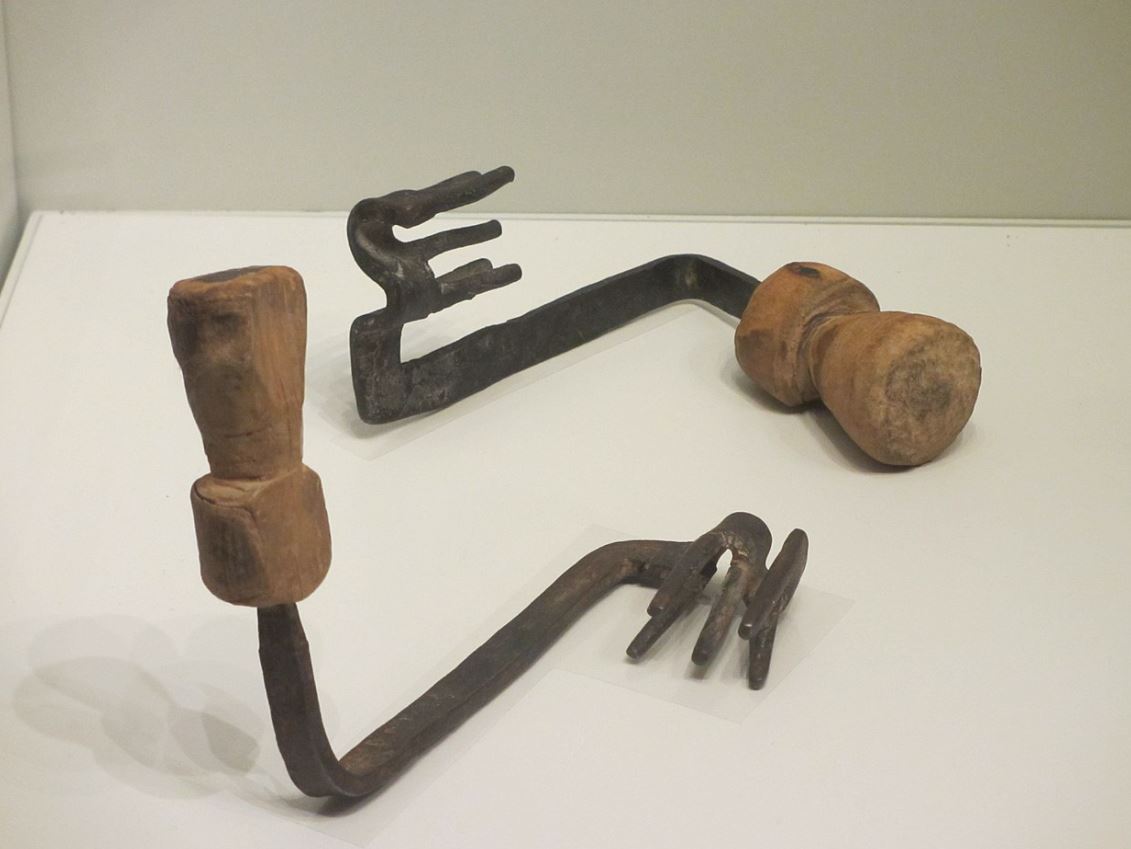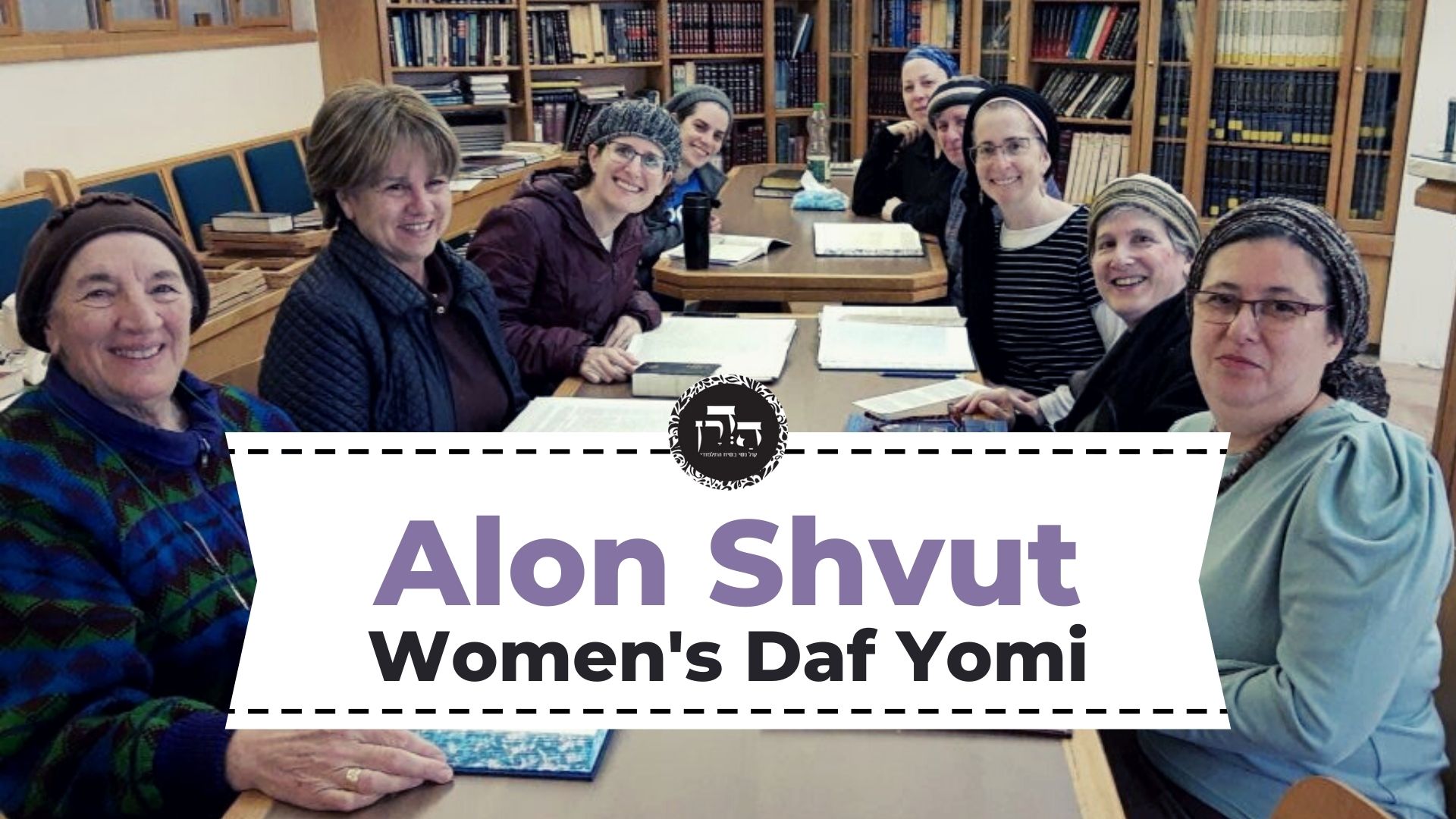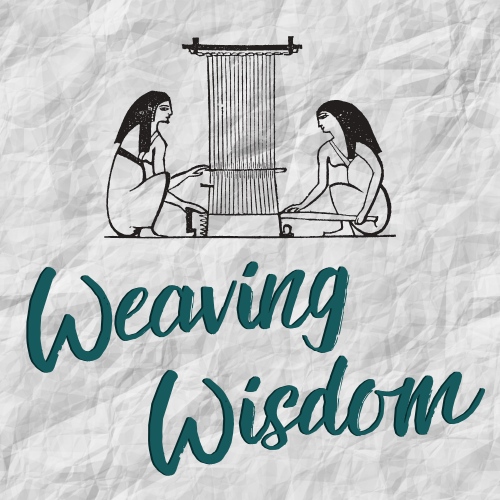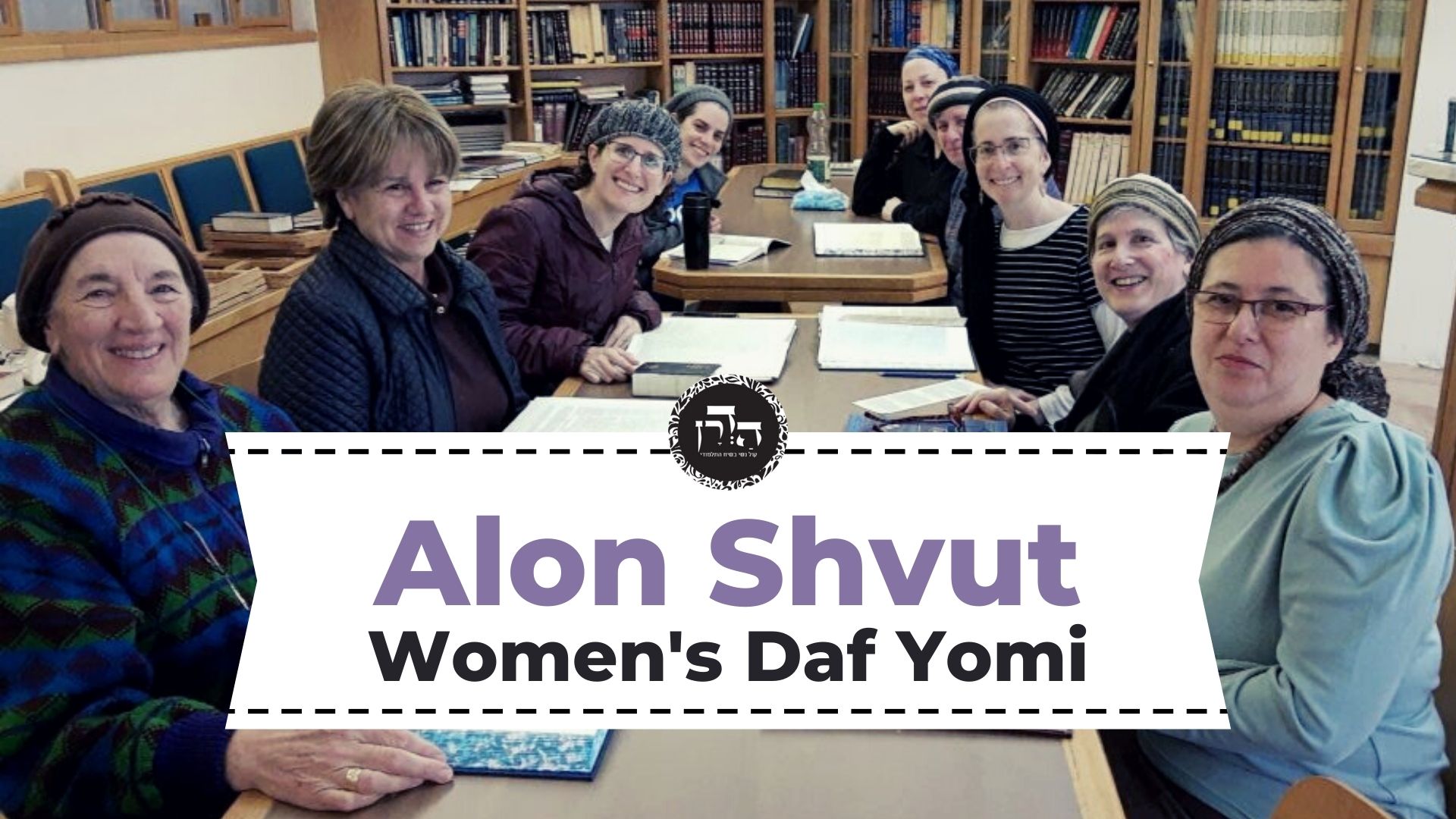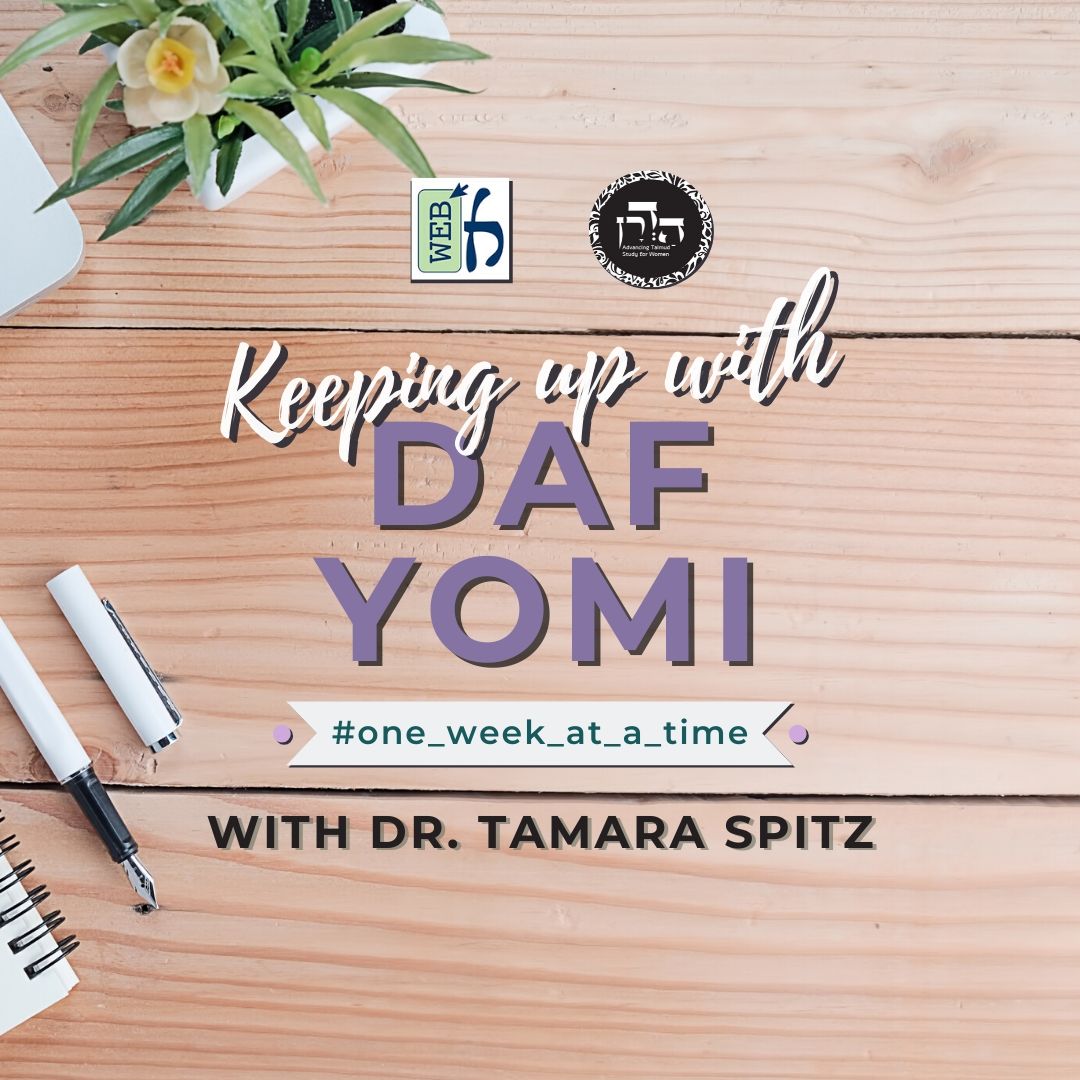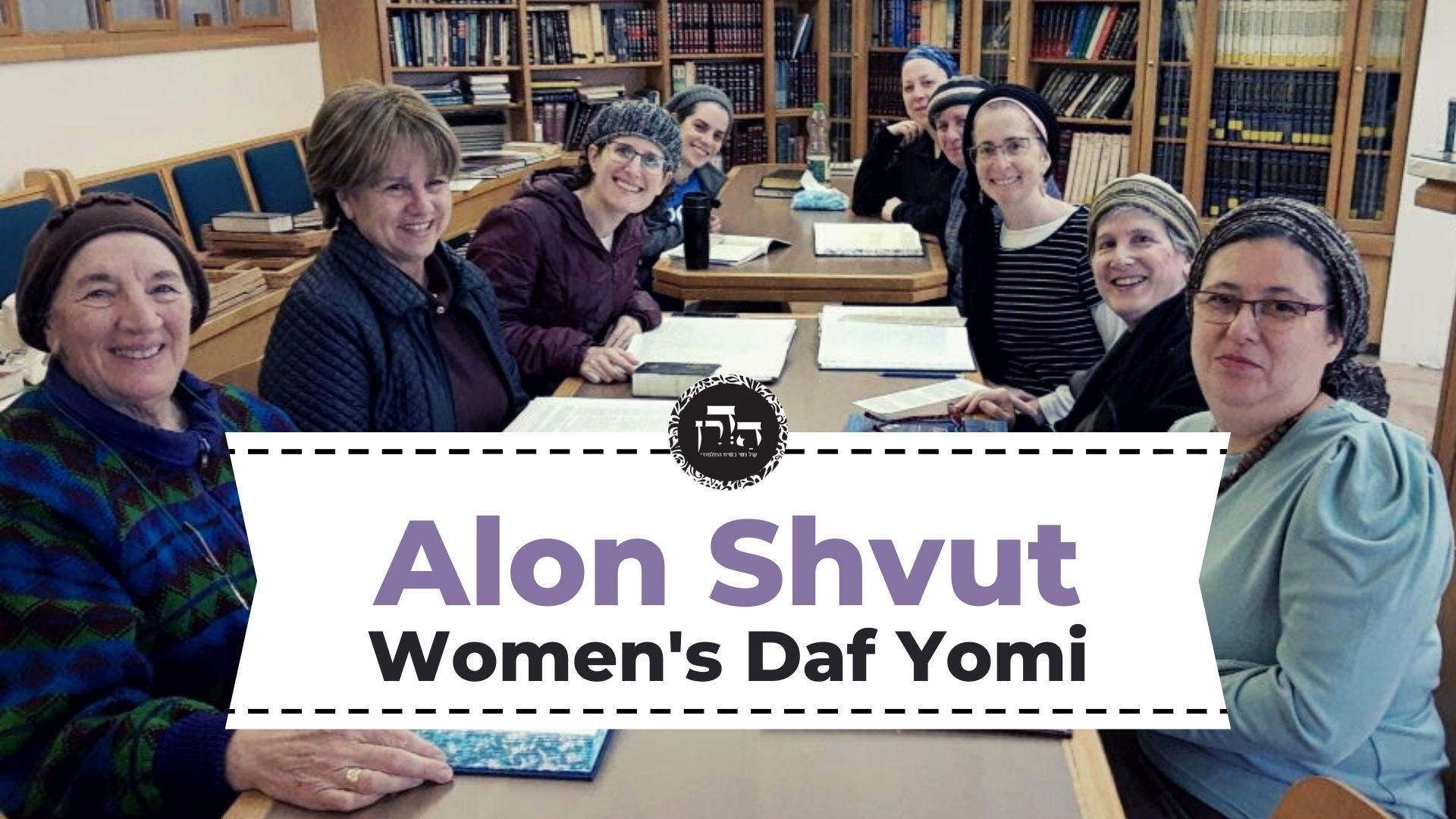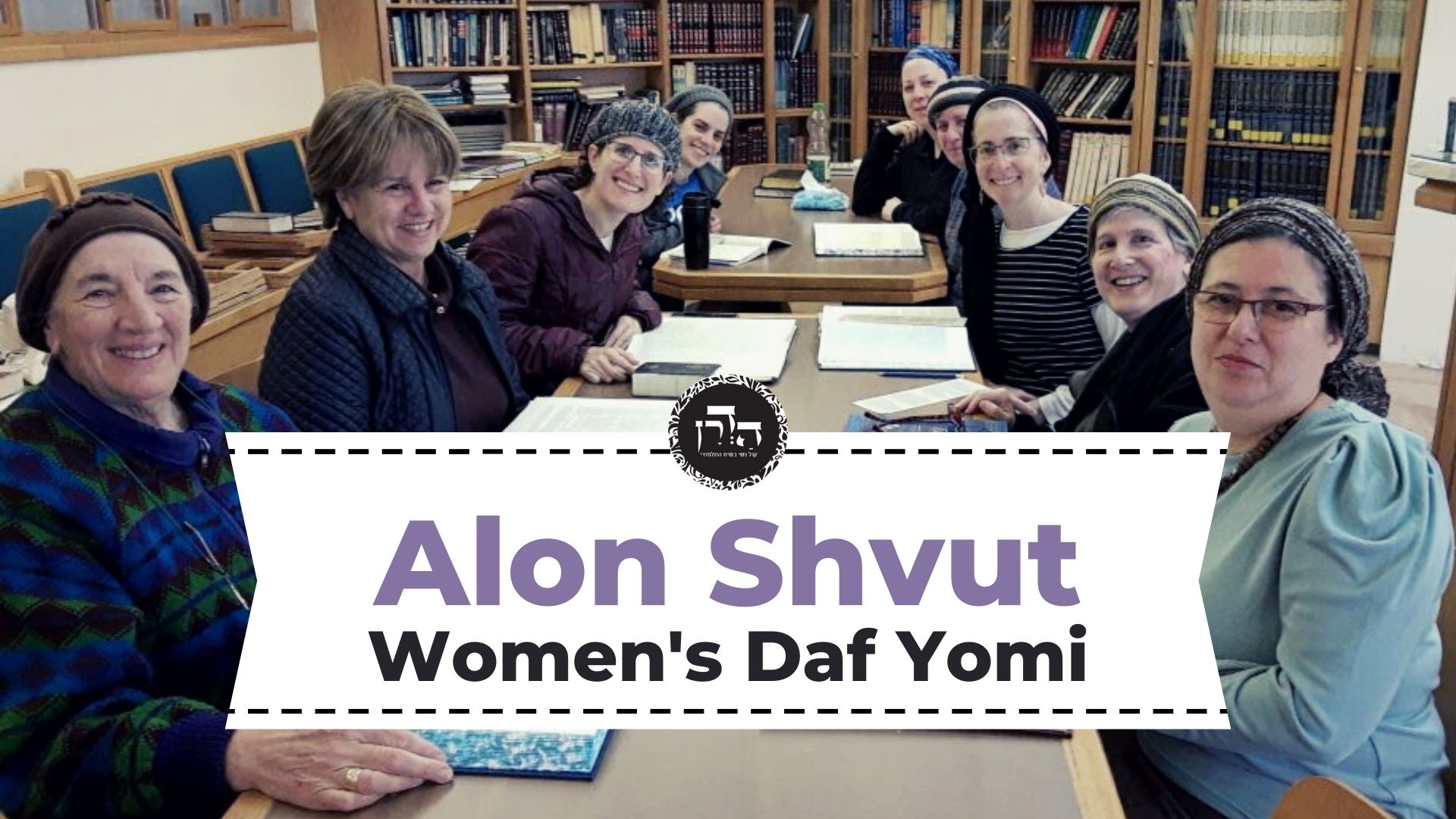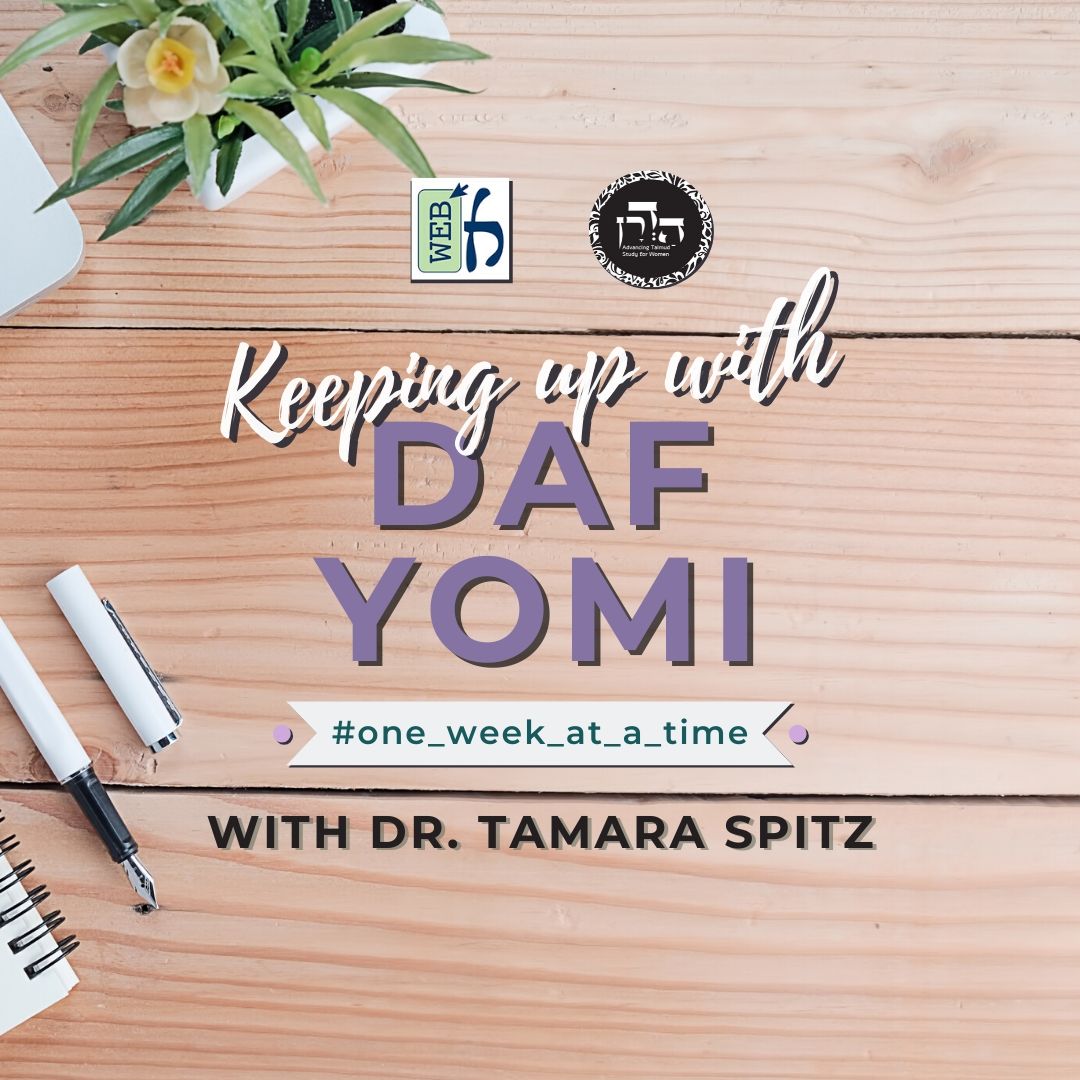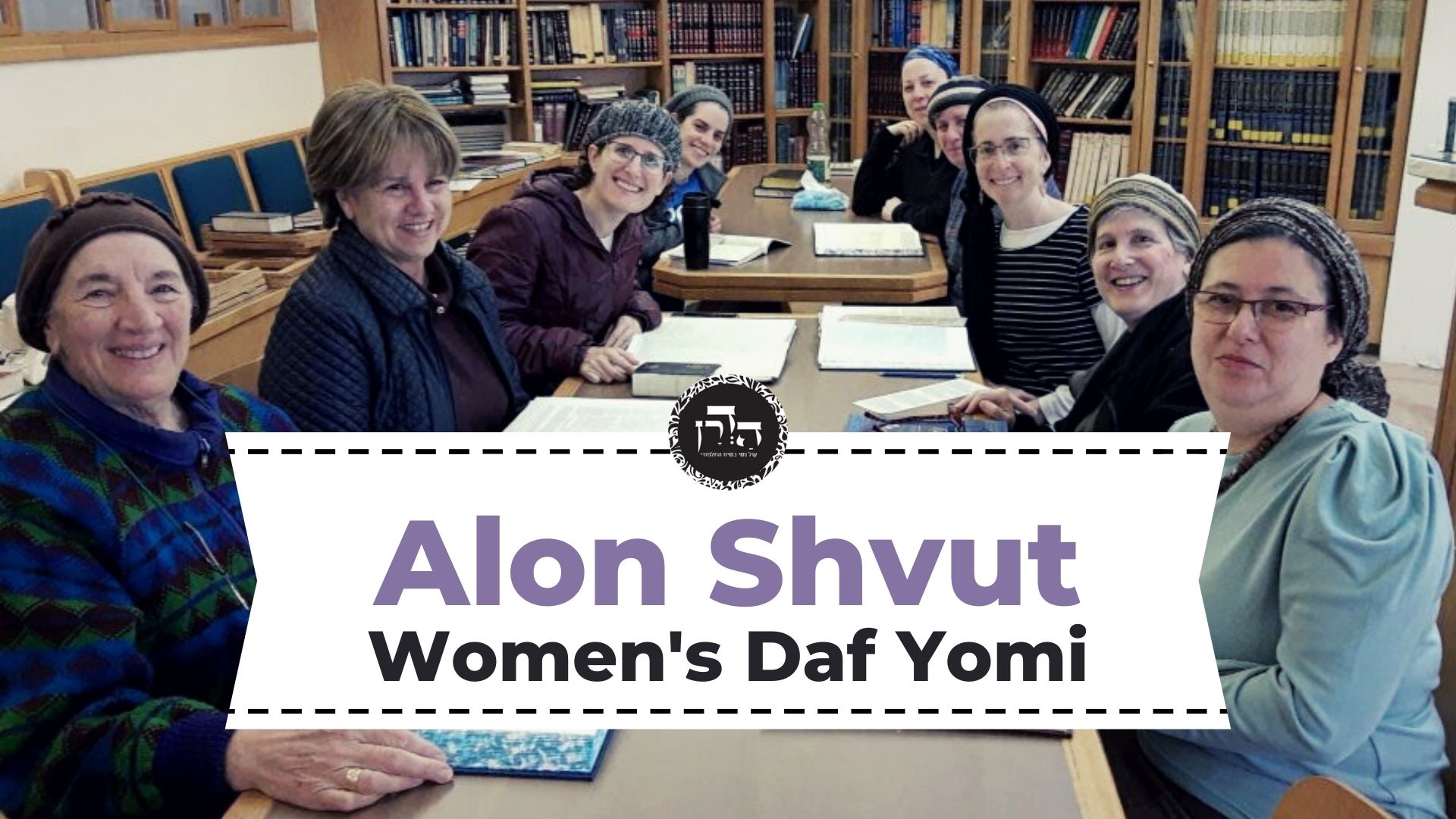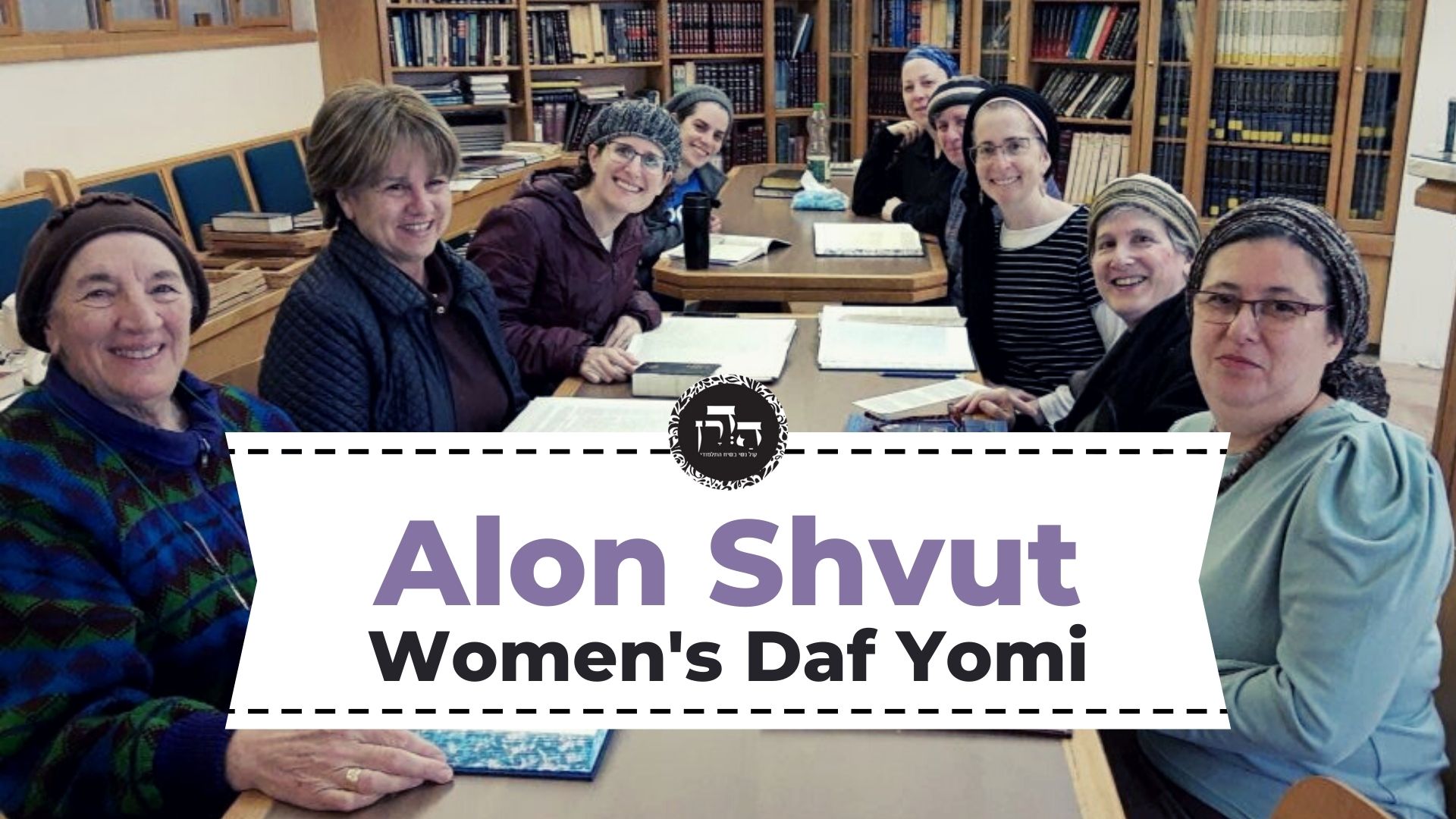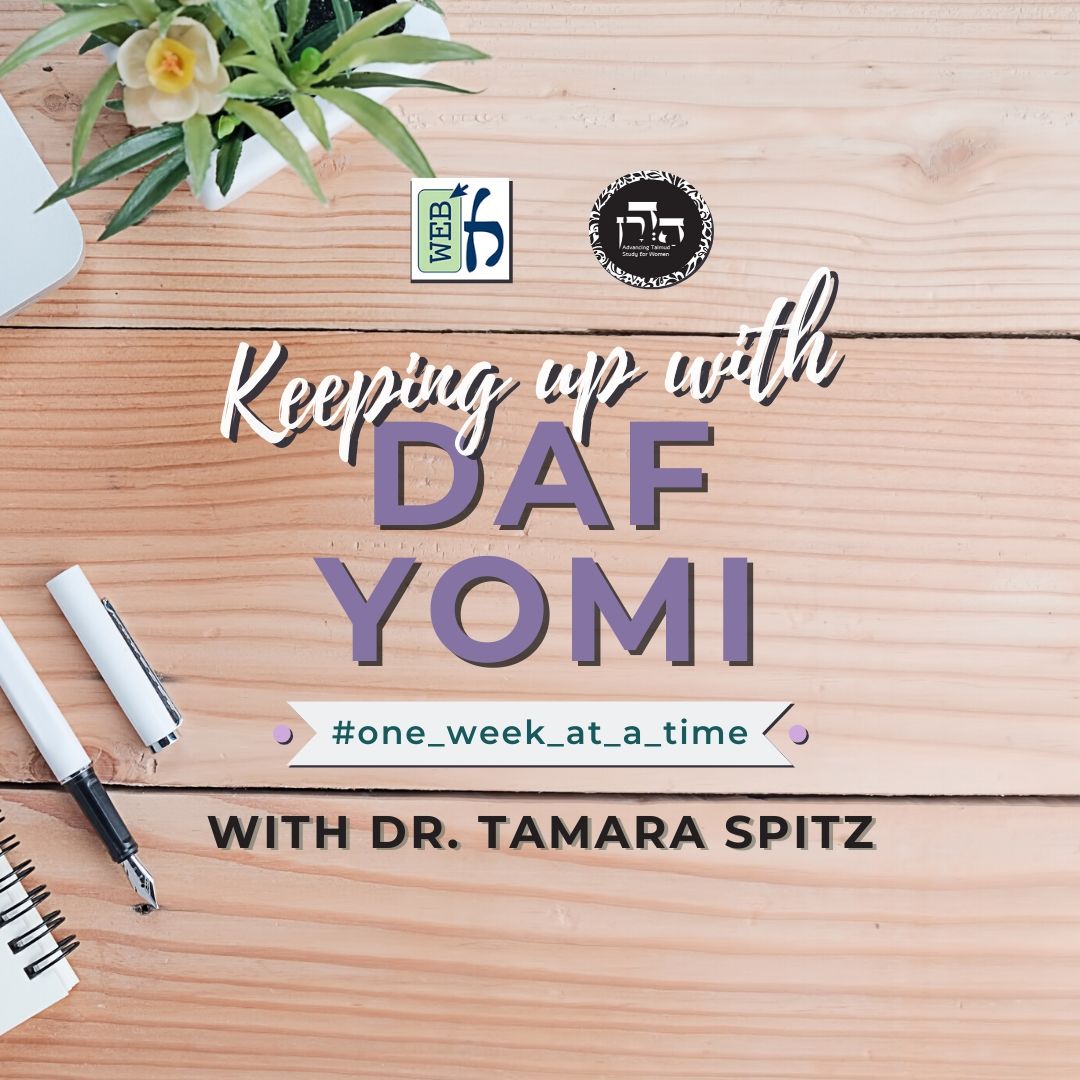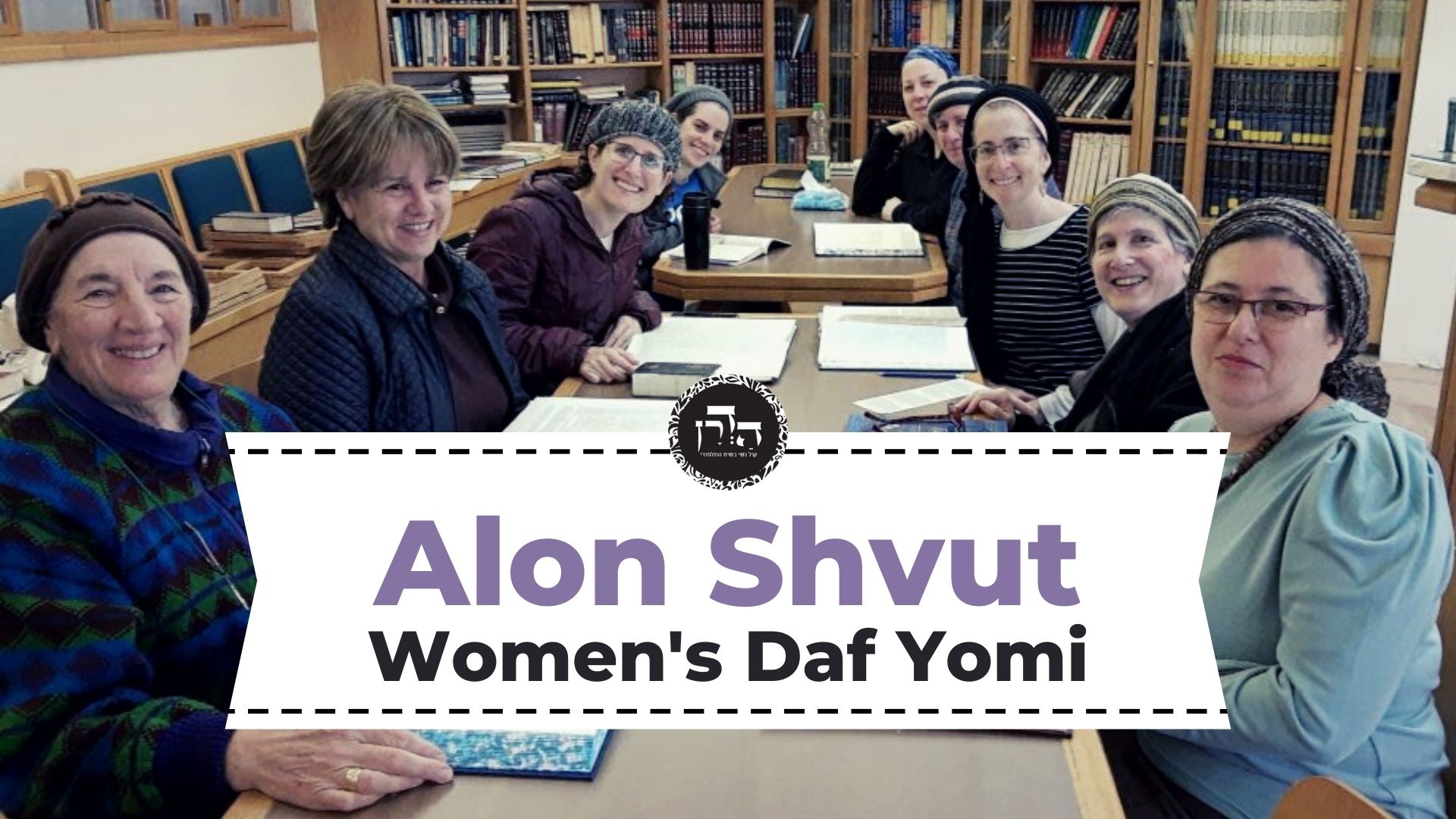Rabbi Yochanan taught that any time there is a general rule in a mishna, one can assume that there are exceptions to that rule. Even in a case where exceptions are listed, there may be more exceptions. The gemara learns that this statement was made in reference to the mishna in Kiddushin 29 about women being exempt from time bound mitzvot and obligated in non time bound commandments. The gemara then lists a number of exceptions to that rule. The gemara then brings a mishna relating to zav and our mishna which both list exceptions and yet there are more exceptions. There was a statement made either about eruv or about maaser sheni that when our mishna said water and salt, it only meant on their own but salt water can be used. A question is raised regarding salt water for maaser sheni and the response is that it must have oil mixed in. It is coming to teach that if one uses the maaser money to buy salt water mixed with oil, even though salt water is insignificant, since it is mixed with oil, one can use the money to purchase it all even though some of it would not be worthy on its own. The gemara questions this as that law is learned directly from a drasha on the verse relating to maaser sheni. The gemara delves into that drasha and tries to understand what each part of the verse is coming to teach. Rabbi Yochanan understands why each word is there other than “cattle.” What is the basis for the debate regarding buying fish from maaser sheni money?
This week’s learning is sponsored by Nira Feldman in loving memory of her mother, Faye Darack Z’L 3rd yahrzeit. “She was a dedicated Hadran learner and continues to inspire us with her curiosity and love of learning each day. We miss her deeply.”
This week’s learning is sponsored by Nira Feldman in loving memory of her mother, Faye Darack Z’L 3rd yahrzeit. “She was a dedicated Hadran learner and continues to inspire us with her curiosity and love of learning each day. We miss her deeply.”
Want to dedicate learning? Get started here:


Today’s daily daf tools:
This week’s learning is sponsored by Nira Feldman in loving memory of her mother, Faye Darack Z’L 3rd yahrzeit. “She was a dedicated Hadran learner and continues to inspire us with her curiosity and love of learning each day. We miss her deeply.”
This week’s learning is sponsored by Nira Feldman in loving memory of her mother, Faye Darack Z’L 3rd yahrzeit. “She was a dedicated Hadran learner and continues to inspire us with her curiosity and love of learning each day. We miss her deeply.”
Today’s daily daf tools:
Delve Deeper
Broaden your understanding of the topics on this daf with classes and podcasts from top women Talmud scholars.
New to Talmud?
Check out our resources designed to help you navigate a page of Talmud – and study at the pace, level and style that fits you.
The Hadran Women’s Tapestry
Meet the diverse women learning Gemara at Hadran and hear their stories.
Eruvin 27
מִפְּנֵי שֶׁיָּכוֹל לָחוֹץ, וְלֵילֵךְ וְלֶאֱכוֹל.
since he can interpose between himself and the graves and go and eat the food that comprises the eiruv without contracting ritual impurity.
גְּמָ׳ אָמַר רַבִּי יוֹחָנָן: אֵין לְמֵידִין מִן הַכְּלָלוֹת, וַאֲפִילּוּ בִּמְקוֹם שֶׁנֶּאֱמַר בּוֹ חוּץ.
GEMARA: Rabbi Yoḥanan said: One may not learn from general statements, i.e., when a general statement is made in a mishna using the word all, it is not to be understood as an all-inclusive, general statement without exceptions. This is true even in a place where it says the word except. Even in that case, there may be other exceptions to the rule that are not listed.
מִדְּקָאָמַר: אֲפִילּוּ בִּמְקוֹם שֶׁנֶּאֱמַר בּוֹ חוּץ, מִכְּלָל דְּלָאו הָכָא קָאֵי, הֵיכָא קָאֵי?
The Gemara notes: From the fact that Rabbi Yoḥanan said: Even in a place where it says except, this proves by inference that he was not relating to the general statement made here in the mishna, which uses the word except. To which mishna, then, was he relating when he formulated his principle?
הָתָם קָאֵי כׇּל מִצְוַת עֲשֵׂה שֶׁהַזְּמַן גְּרָמָא, אֲנָשִׁים חַיָּיבִין וְנָשִׁים פְּטוּרוֹת. וְשֶׁלֹּא הַזְּמַן גְּרָמָא, אֶחָד נָשִׁים וְאֶחָד אֲנָשִׁים חַיָּיבִין.
The Gemara answers: He was relating to a mishna found there: With regard to all time-bound, positive commandments, i.e., mitzvot that can only be performed at a certain time of the day, or during the day rather than at night, or on certain days of the year, men are obligated to perform them and women are exempt. But positive commandments that are not time-bound, both women and men are obligated to perform.
וּכְלָלָא הוּא דְּכׇל מִצְוַת עֲשֵׂה שֶׁהַזְּמַן גְּרָמָא נָשִׁים פְּטוּרוֹת? הֲרֵי מַצָּה שִׂמְחָה וְהַקְהֵל, דְּמִצְוַת עֲשֵׂה שֶׁהַזְּמַן גְּרָמָא הוּא, וְנָשִׁים חַיָּיבוֹת.
Is it a general principle that women are exempt from all time-bound, positive commandments without exception? But there is the commandment to eat matza on Passover, the commandment of rejoicing on a Festival, and the commandment of assembly in the Temple courtyard once every seven years during the festival of Sukkot following the Sabbatical Year, all of which are time-bound, positive commandments, and nevertheless, women are obligated to perform them.
וְכׇל מִצְוַת עֲשֵׂה שֶׁלֹּא הַזְּמַן גְּרָמָא נָשִׁים חַיָּיבוֹת? הֲרֵי תַּלְמוּד תּוֹרָה, פְּרִיָּה וּרְבִיָּה, וּפִדְיוֹן הַבֵּן, דְּמִצְוַת עֲשֵׂה שֶׁלֹּא הַזְּמַן גְּרָמָא וְנָשִׁים פְּטוּרוֹת. אֶלָּא אָמַר רַבִּי יוֹחָנָן: אֵין לְמֵידִין מִן הַכְּלָלוֹת וַאֲפִילּוּ בִּמְקוֹם שֶׁנֶּאֱמַר בּוֹ חוּץ.
Similarly, are women obligated in all positive commandments that are not time-bound? But there is the commandment of Torah study, the commandment to be fruitful and multiply, and the commandment of redemption of the firstborn, all of which are positive commandments that are not time-bound, and nevertheless, women are exempt from them. Rather, Rabbi Yoḥanan said: One may not learn from general statements, even in a place where it says except, because it is always possible that there other exceptions to the rule.
אָמַר אַבָּיֵי, וְאִיתֵּימָא רַבִּי יִרְמְיָה: אַף אֲנַן נָמֵי תְּנֵינָא, עוֹד כְּלָל אַחֵר אָמְרוּ: כׇּל שֶׁנִּישָּׂא עַל גַּבֵּי הַזָּב — טָמֵא, וְכֹל שֶׁהַזָּב נִישָּׂא עָלָיו — טָהוֹר, חוּץ מִן הָרָאוּי לְמִשְׁכָּב וּמוֹשָׁב, וְהָאָדָם. וְתוּ לֵיכָּא? וְהָא אִיכָּא מֶרְכָּב?!
Abaye said, and some say it was Rabbi Yirmeya who said: We, too, have also learned a proof for Rabbi Yoḥanan’s principle from a mishna: They stated yet another general principle: Anything that is carried upon a zav is ritually impure. And anything on which a zav is carried is ritually pure, except for an object suitable for lying or sitting upon and a human being, which become defiled if a zav is borne on them. The following objection may be raised: And is there nothing else? But there is an object upon which a person rides that becomes impure, as explained in the Torah itself.
מֶרְכָּב הֵיכִי דָמֵי? אִי דְּיָתֵיב עֲלֵיהּ — הַיְינוּ מוֹשָׁב. אֲנַן הָכִי קָאָמְרִינַן: הָא אִיכָּא גַּבָּא דְאוּכָּפָא, דְּתַנְיָא: הָאוּכָּף — טָמֵא מוֹשָׁב, וְהַתְּפוּס — טָמֵא מֶרְכָּב. אֶלָּא שְׁמַע מִינַּהּ אֵין לְמֵידִין מִן הַכְּלָלוֹת וַאֲפִילּוּ בִּמְקוֹם שֶׁנֶּאֱמַר בּוֹ חוּץ.
The Gemara first asks: What are the circumstances of an object upon which one rides? If he sat upon it, it is a seat. If not, how does it become defiled? What is there that is suitable for riding upon but does not fall into the category of something upon which one lies or sits? The Gemara answers: We say as follows: There is the upper part of a saddle, which becomes ritually impure as a riding accessory and not as a regular seat. As it was taught in the Tosefta: A saddle upon which a zav sat is impure as a seat of a zav, and the pommel, which is attached to the front of the saddle and used by the rider to maintain his position or to assist in mounting, is impure as a riding accessory. Therefore, we see that the general statement found in the mishna omits that which is suitable for riding upon. Rather, conclude from this that one may not learn from general statements, even in a place where it says except.
אָמַר רָבִינָא, וְאִיתֵּימָא רַב נַחְמָן: אַף אֲנַן נָמֵי תְּנֵינָא: בַּכֹּל מְעָרְבִין וּמִשְׁתַּתְּפִין, חוּץ מִן הַמַּיִם וְהַמֶּלַח. וְתוּ לֵיכָּא? וְהָא אִיכָּא כְּמֵיהִין וּפִטְרִיּוֹת?! — אֶלָּא שְׁמַע מִינַּהּ: אֵין לְמֵידִין מִן הַכְּלָלוֹת וַאֲפִילּוּ בִּמְקוֹם שֶׁנֶּאֱמַר בּוֹ חוּץ.
Ravina said, and some say it was Rav Naḥman who said: We, too, have also learned a proof for Rabbi Yoḥanan’s principle from the mishna, which states: One may establish an eiruv and merge alleyways with all kinds of food, except for water and salt. And is there nothing else? But there are truffles and mushrooms, which also may not be used for an eiruv because they are not regarded as food. Rather, conclude from this that one may not learn from general statements, even in a place where it says except.
הַכֹּל נִיקָּח בְּכֶסֶף מַעֲשֵׂר כּוּ׳. רַבִּי אֱלִיעֶזֶר וְרַבִּי יוֹסֵי בַּר חֲנִינָא, חַד מַתְנֵי אַעֵירוּב וְחַד מַתְנֵי אַמַּעֲשֵׂר.
We learned in the mishna: All types of food may be bought with second-tithe money, except for water and salt. Rabbi Eliezer and Rabbi Yosei bar Ḥanina both had the same tradition, but one teaches it with regard to eiruv, and one teaches it with regard to the second tithe.
חַד מַתְנֵי אַעֵירוּב: לֹא שָׁנוּ אֶלָּא מַיִם בִּפְנֵי עַצְמוֹ וּמֶלַח בִּפְנֵי עַצְמוֹ דְּאֵין מְעָרְבִין. אֲבָל בְּמַיִם וּמֶלַח — מְעָרְבִין.
The Gemara elaborates: One teaches this halakha with regard to the issue of eiruv, as follows: They only taught that one may not establish an eiruv with water or salt in the case of water by itself or salt by itself. But with water and salt together, one may indeed establish an eiruv.
וְחַד מַתְנֵי אַמַּעֲשֵׂר: לֹא שָׁנוּ אֶלָּא מַיִם בִּפְנֵי עַצְמוֹ וּמֶלַח בִּפְנֵי עַצְמוֹ, דְּאֵין נִיקָּחִין. אֲבָל מַיִם וּמֶלַח — נִיקָּחִין בְּכֶסֶף מַעֲשֵׂר.
And the other one teaches this halakha with regard to the issue of the second tithe: They only taught that water or salt may not be bought with second-tithe money in the case of water by itself or salt by itself. But water and salt mixed together may indeed be bought with second-tithe money.
מַאן דְּמַתְנֵי אַמַּעֲשֵׂר, כׇּל שֶׁכֵּן אַעֵירוּב. וּמַאן דְּמַתְנֵי אַעֵירוּב, אֲבָל אַמַּעֲשֵׂר לָא. מַאי טַעְמָא — פֵּירָא בָּעִינַן.
The Gemara comments: The one who teaches this law with regard to the second tithe, all the more so would he apply it to an eiruv, i.e., he would certainly maintain that water and salt together are suitable to be used for an eiruv. However, according to the one who teaches this law with regard to an eiruv, it applies only to an eiruv; but with regard to the second tithe, no, it does not apply. What is the reason for this distinction? For the second tithe, we require produce, as stated in the Torah, and even when water and salt are mixed together they do not have the status of produce.
כִּי אֲתָא רַבִּי יִצְחָק, מַתְנֵי אַמַּעֲשֵׂר. מֵיתִיבִי: הֵעִיד רַבִּי יְהוּדָה בֶּן גָּדִישׁ לִפְנֵי רַבִּי אֱלִיעֶזֶר: שֶׁל בֵּית אַבָּא הָיוּ לוֹקְחִין צִיר בְּכֶסֶף מַעֲשֵׂר. אָמַר לוֹ: שֶׁמָּא לֹא שָׁמַעְתָּ אֶלָּא כְּשֶׁקִּרְבֵי דָגִים מְעוֹרָבִין בָּהֶן. וַאֲפִילּוּ רַבִּי יְהוּדָה בֶּן גָּדִישׁ לָא קָאָמַר אֶלָּא בְּצִיר, דְּשׁוּמְנָא דְפֵירָא הִיא, אֲבָל מַיִם וּמֶלַח — לֹא.
When Rabbi Yitzḥak came from Eretz Yisrael to Babylonia, he taught this law with regard to the second tithe. The Gemara raises an objection from the following baraita: Rabbi Yehuda ben Gadish testified before Rabbi Eliezer: In Father’s house they would buy fish brine with second-tithe money. He said to him: Perhaps you only heard this in a case where the fish’s innards were mixed with the brine. Since this mixture contains a small portion of the fish, the brine becomes significant enough to be purchased with second-tithe money. And even Rabbi Yehuda ben Gadish only said his statement with regard to brine, which is the fat of produce, i.e., because a certain amount of fish fat, which itself may be purchased with second-tithe money, is mixed in with the brine; but a mixture of water and salt alone may not be bought with it.
אָמַר רַב יוֹסֵף:
In response to this difficulty, Rav Yosef said:
לֹא נִצְרְכָה אֶלָּא שֶׁנָּתַן לְתוֹכָן שֶׁמֶן.
Rabbi Yitzḥak’s ruling that water and salt mixed together may be bought with second-tithe money was only necessary in a case where one added oil to them. But a mixture of water and salt alone may not be purchased with second-tithe money.
אֲמַר לֵיהּ אַבָּיֵי: וְתִיפּוֹק לֵיהּ מִשּׁוּם שֶׁמֶן! לֹא צְרִיכָא, שֶׁנָּתַן דְּמֵי מַיִם וּמֶלַח בְּהַבְלָעָה.
Abaye said to Rav Yosef: If so, let him derive that the mixture may be bought with second-tithe money because of the oil alone. The Gemara refutes this argument: No, it was necessary for a case in which one paid the value of the water and salt by including it in the payment for the oil. Although ostensibly the money that he paid was for the oil, he added to the price of the oil in order to include payment for the water and salt that were mixed with it.
וּבְהַבְלָעָה מִי שְׁרֵי? אִין — וְהָתַנְיָא, בֶּן בַּג בַּג אוֹמֵר: ״בַּבָּקָר״ — מְלַמֵּד שֶׁלּוֹקְחִין בָּקָר עַל גַּב עוֹרוֹ. ״וּבַצֹּאן״ — מְלַמֵּד שֶׁלּוֹקְחִין צֹאן עַל גַּב גִּיזָּתָהּ. ״וּבַיַּיִן״ — מְלַמֵּד שֶׁלּוֹקְחִין יַיִן עַל גַּב קַנְקַנּוֹ. ״וּבַשֵּׁכָר״ — מְלַמֵּד שֶׁלּוֹקְחִין תֶּמֶד מִשֶּׁהֶחְמִיץ.
The Gemara asks: But if something may not be bought with second-tithe money, is one permitted to buy it by including it in the payment for something which may be bought with second-tithe money? The Gemara answers: Yes, and so it was taught in the following baraita: Ben Bag Bag says in exposition of the verse: “And you shall bestow that money on all that your heart desires, on oxen, on sheep, on wine, on strong drink, on whatever your soul requests” (Deuteronomy 14:26): “On oxen” teaches that one may buy an ox and include in its price payment for its hide. Although the hide cannot be eaten, it may be bought together with the ox, and it does not acquire the sanctity of the second tithe. “On sheep” teaches that one may buy a sheep and include in its price payment for its fleece, which is used for purposes other than eating. “On wine” teaches that one may buy wine and include in its price payment for its jug. “On strong drink” teaches that one is permitted to buy not only actual wine, but one may buy even mead, water in which grape seeds are soaked, once it has fermented and acquired the flavor of wine.
אָמַר רַבִּי יוֹחָנָן: מַאן דִּמְתַרְגֵּם לִי ״בַּבָּקָר״ אַלִּיבָּא דְּבֶן בַּג בַּג, מוֹבֵילְנָא מָאנֵיהּ אַבָּתְרֵיהּ לְבֵי מַסּוּתָא.
Having cited ben Bag Bag’s exposition of the verse, the Gemara continues: Rabbi Yoḥanan said: Whoever interprets the words “on oxen” for me in accordance with the opinion of ben Bag Bag, I will carry his clothes after him into the bathhouse, i.e., I will honor him to such an extent that I will be prepared to treat him as a servant treats his master.
מַאי טַעְמָא? כּוּלְּהוּ צְרִיכִי לְבַר מִ״בַּבָּקָר״, דְּלָא צְרִיךְ. מַאי צְרִיכִי? דְּאִי כְּתַב רַחֲמָנָא ״בַּבָּקָר״, הֲוָה אָמֵינָא: בָּקָר הוּא דְּמִזְדַּבַּן עַל גַּב עוֹרוֹ, מִשּׁוּם דְּגוּפֵיהּ הוּא. אֲבָל צֹאן עַל גַּב גִּיזָּתָהּ, דְּלָאו גּוּפֵיהּ הוּא — אֵימָא לָא.
What is the reason for Rabbi Yoḥanan’s difficulty? All parts of the verse cited above are necessary, except for the expression “on oxen,” which is not necessary. The Gemara clarifies: For what purpose are all the other words necessary? As, if the Torah had written only “on oxen,” I might have said that it is only an ox that may be bought together with its hide with second-tithe money because the hide is an inseparable part of its body, and therefore it is not considered an independent entity from its flesh. But as for buying a sheep together with its fleece, which is not an inseparable part of its body because the fleece can be removed from the sheep while it is alive, you might say no, second-tithe money may not be spent in this manner. It was therefore necessary to state “on sheep.”
וְאִי כְּתַב רַחֲמָנָא ״בַּצֹּאן״ עַל גַּב גִּיזָּתָהּ, הֲוָה אָמֵינָא: מִשּׁוּם דִּמְחוּבָּר בָּהּ. אֲבָל יַיִן עַל גַּב קַנְקַנּוֹ — אֵימָא לָא.
And if the Torah had also written “on sheep,” teaching that one may buy even a sheep with second-tithe money together with its fleece, I might have said that it is only a sheep that may be bought together with its fleece because the fleece is attached to it, and therefore it is considered part of the animal. But as for buying wine together with its jug, you might say no, second-tithe money may not be spent this way. It was therefore necessary to state “on wine.”
וְאִי כְּתַב רַחֲמָנָא ״בַּיַּיִן״, הֲוָה אָמֵינָא: מִשּׁוּם דְּהַיְינוּ נְטִירוּתֵיהּ. אֲבָל תֶּמֶד מִשֶּׁהֶחְמִיץ דְּקִיּוּהָא בְּעָלְמָא הוּא, אֵימָא לָא. כְּתַב רַחֲמָנָא ״שֵׁכָר״.
And if the Torah had also written “on wine,” indicating that one may even buy wine together with its jug with second-tithe money, I might still have said that this is because the jug is needed for the wine’s preservation, as there is no way to carry wine without some sort of container. But as for mead that has fermented, which is mere acidity, you might say no, it should not be included among the items that may be bought with second-tithe money. Therefore, the Torah wrote: “On strong drink.”
וְאִי כְּתַב רַחֲמָנָא ״בַּשֵּׁכָר״, הֲוָה אָמֵינָא: מַאי שֵׁכָר? דְּבֵילָה קְעִילִית, דְּפֵירָא הוּא. אֲבָל יַיִן עַל גַּב קַנְקַנּוֹ — אֵימָא לָא.
The necessity of each word much be proven in the opposite order as well. And if the Torah had only written “on strong drink,” I might have said: What is meant by strong drink? Dried figs from the town of Ke’ila, which are choice and juicy figs that can have an intoxicating effect. They are therefore considered produce and not merely mead. But as for buying wine together with its jug, you might say no, this may not be done with second-tithe money, and therefore it was necessary to state “on wine.”
וְאִי כְּתַב רַחֲמָנָא יַיִן עַל גַּב קַנְקַנּוֹ — דְּהַיְינוּ נְטִירוּתֵיהּ. אֲבָל צֹאן עַל גַּב גִּיזָּתָהּ — אֵימָא לָא. כְּתַב רַחֲמָנָא ״צֹאן״, דַּאֲפִילּוּ עַל גַּב גִּיזָּתָהּ.
And if the Torah had also written “on wine,” indicating that one may buy even wine together with its jug with second-tithe money, I might have said that this is because the jug is needed for the wine’s preservation. But as for buying a sheep together with its fleece, you might say no, this may not be done with second-tithe money. Therefore, the Torah stated “on sheep,” to teach that a sheep may be bought with second-tithe money even together with its fleece.
״בַּבָּקָר״ לְמָה לִי?! וְכִי תֵּימָא: אִי לָא כְּתַב רַחֲמָנָא ״בַּבָּקָר״, הֲוָה אָמֵינָא: צֹאן עַל גַּב עוֹרָהּ אִין, עַל גַּב גִּיזָּתָהּ לָא. כְּתַב רַחֲמָנָא ״בַּבָּקָר״ לְאֵתוֹיֵי עוֹרוֹ. אִיַּיתַּר לֵיהּ ״צֹאן״ לְאֵתוֹיֵי גִּיזָּתָהּ.
If so, why do I need the words “on oxen”? If one may purchase a sheep together with its fleece with second-tithe money, it should certainly be permitted to buy an ox together with its hide. And if you say that if the Torah had not written “on oxen,” I might have said that a sheep together with its hide, yes, it may be bought with second-tithe money, but together with its fleece, no, it may not be bought; therefore, the Torah wrote “on oxen,” to include its hide, and so “on sheep” remains available for interpretation to include its fleece, i.e., that a sheep may be bought even together with its fleece. Therefore, the words “on oxen” are necessary, for without them I would have understood “on sheep” differently.
אִי לָא כְּתַב רַחֲמָנָא ״בָּקָר״, לָא הֲוָה אָמֵינָא צֹאן עַל גַּב עוֹרָהּ — אִין, עַל גַּב גִּיזָּתָהּ — לָא. דְּאִם כֵּן, לִכְתּוֹב רַחֲמָנָא ״בָּקָר״, דְּמִמֵּילָא אִיַּיתַּר לֵיהּ ״צֹאן״.
This argument can, however, be refuted: Even if the Torah had not written “on oxen,” I would not have said that a sheep together with its hide, yes, it may be bought with second-tithe money, but together with its fleece, no, it may not. For if it were so, the Torah should have written “on oxen,” in which case the words “on sheep” would remain available for interpretation. “On sheep” can be explained in two ways, both in reference to its hide as well as in reference to its fleece. Had the Torah wanted to teach only that an animal may be bought together with its hide but not with its fleece, it would have written “on oxen” only, which would have left no room for error, as oxen do not have fleece.
וְכֵיוָן דִּכְתַב רַחֲמָנָא ״צֹאן״, דַּאֲפִילּוּ עַל גַּב גִּיזָּתָהּ. ״בַּבָּקָר״ לְמָה לִי? הַשְׁתָּא צֹאן עַל גַּב גִּיזָּתָהּ מִיזְדַּבְּנָא, בָּקָר עַל גַּב עוֹרוֹ מִיבַּעְיָא? הַיְינוּ דְּקָאָמַר רַבִּי יוֹחָנָן: מַאן דִּמְתַרְגֵּם לִי ״בַּבָּקָר״ אַלִּיבָּא דְּבֶן בַּג בַּג, מוֹבֵילְנָא מָאנֵיהּ לְבֵי מַסּוּתָא.
And since the Torah writes “on sheep,” teaching that a sheep may be bought with second-tithe money even together with its fleece, why do I need the words “on oxen”? These words are now entirely superfluous. If a sheep may be bought together with its fleece, is it necessary to state that an ox may be bought together with its hide? This is what Rabbi Yoḥanan meant when he said: Whoever interprets the words “on oxen” for me in accordance with the opinion of ben Bag Bag, I will carry his clothes after him into the bathhouse.
בְּמַאי קָא מִיפַּלְגִי רַבִּי יְהוּדָה בֶּן גָּדִישׁ וְרַבִּי אֱלִיעֶזֶר וְהָנֵי תַּנָּאֵי דִּלְקַמַּן? רַבִּי יְהוּדָה בֶּן גָּדִישׁ וְרַבִּי אֱלִיעֶזֶר דָּרְשִׁי רִבּוּיֵי וּמִיעוּטֵי, וְהָנֵי תַּנָּאֵי דָּרְשִׁי כְּלָלֵי וּפְרָטֵי.
The Gemara now returns to the tannaitic disagreement pertaining to buying fish brine with second-tithe money: With regard to what principle do Rabbi Yehuda ben Gadish, and Rabbi Eliezer, and these tanna’im whose views will be cited below, disagree? The Gemara explains: Rabbi Yehuda ben Gadish and Rabbi Eliezer expound the verse based on the principle of amplifications and restrictions, and these tanna’im expound it based on the principle of generalizations and details, which is a different approach to biblical exegesis.
רַבִּי יְהוּדָה בֶּן גָּדִישׁ וְרַבִּי אֱלִיעֶזֶר דָּרְשִׁי רִיבּוּיֵי וּמִיעוּטֵי. ״וְנָתַתָּה הַכֶּסֶף בְּכֹל אֲשֶׁר תְּאַוֶּה נַפְשְׁךָ״ — רִיבָּה, ״בַּבָּקָר וּבַצֹּאן וּבַיַּיִן וּבַשֵּׁכָר״ — מִיעֵט, ״וּבְכֹל אֲשֶׁר תִּשְׁאׇלְךָ נַפְשֶׁךָ״ — חָזַר וְרִיבָּה. רִיבָּה וּמִיעֵט וְרִיבָּה — רִיבָּה הַכֹּל. מַאי רַבִּי? רַבִּי כׇּל מִילֵּי. וּמַאי מִיעֵט? לְרַבִּי אֱלִיעֶזֶר מִיעֵט צִיר, לְרַבִּי יְהוּדָה בֶּן גָּדִישׁ מִיעֵט מַיִם וּמֶלַח.
Rabbi Yehuda ben Gadish and Rabbi Eliezer expound the verse based on the principle of amplifications and restrictions. When the verse states: “And you shall bestow the money on all that your heart desires” (Deuteronomy 14:26), it has amplified. When it then states: “On oxen, on sheep, on wine, and on strong drink,” it has restricted its discussion to certain specific items. When it concludes with the phrase: “On whatever your soul requests,” it has once again amplified. According to this exegetical approach, we conclude that since it amplified and restricted and once again amplified, it has amplified the general category to include everything. What has it amplified the category to include? It has amplified the category to include everything. And what has it restricted from inclusion in the category? Only one thing: According to Rabbi Eliezer, it restricted brine from inclusion because brine is not at all similar to the items listed in the verse; according to Rabbi Yehuda ben Gadish, it restricted water and salt.
וְהָנֵי תַּנָּאֵי דָּרְשִׁי כְּלָלֵי וּפְרָטֵי. דְּתַנְיָא: ״וְנָתַתָּה הַכֶּסֶף בְּכֹל אֲשֶׁר תְּאַוֶּה נַפְשְׁךָ״ — כָּלַל, ״בַּבָּקָר וּבַצֹּאן וּבַיַּיִן וּבַשֵּׁכָר״ — פָּרַט, ״וּבְכֹל אֲשֶׁר תִּשְׁאׇלְךָ נַפְשֶׁךָ״ — חָזַר וְכָלַל. כְּלָל וּפְרָט וּכְלָל אִי אַתָּה דָן אֶלָּא כְּעֵין הַפְּרָט. וּמָה הַפְּרָט מְפוֹרָשׁ: פְּרִי מִפְּרִי, וְגִידּוּלֵי קַרְקַע, אַף כֹּל פְּרִי מִפְּרִי וְגִידּוּלֵי קַרְקַע.
And these other tanna’im expound the verse according to the principle of generalizations and details, as it was taught in a baraita: The phrase: “And you shall bestow the money on all that your heart desires” is a generalization, as no particular type of food is specified. The phrase: “On cattle, on sheep, on wine, and on strong drink” is a detail, as specific types of food are mentioned. When the verse concludes: “On whatever your soul requests,” it has generalized again, as no specific type of food is mentioned. Since the verse is formulated as a generalization, and a detail, and a generalization, you may deduce that the verse is referring only to items similar to the detail. Just as the items mentioned in the detail are clearly defined as the produce of produce, i.e., not only the produce itself but also things that come from it, such as the calf that comes from a cow or grapes from a seed, and they are also things grown from the ground, as all of these items grow from the ground or receive their main sustenance from it, so it includes all things that are the produce of produce and are grown from the ground.
וְתַנְיָא אִידַּךְ: מָה הַפְּרָט מְפוֹרָשׁ: וְלַד וַלְדוֹת הָאָרֶץ, אַף כֹּל וְלַד וַלְדוֹת הָאָרֶץ.
And it was taught in another baraita: Just as the items mentioned in the detail are clearly defined as the offspring of the offspring of the earth, i.e., things that come from items that came from the ground, so it includes all things that are the offspring of the offspring of the earth.
מַאי בֵּינַיְיהוּ? אָמַר אַבָּיֵי: דָּגִים אִיכָּא בֵּינַיְיהוּ. לְמַאן דְּאָמַר פְּרִי מִפְּרִי וְגִידּוּלֵי קַרְקַע, הָנֵי דָּגִים — גִּידּוּלֵי קַרְקַע נִינְהוּ. לְמַאן דְּאָמַר וְלַד וַלְדוֹת הָאָרֶץ, דָּגִים — מִמַּיָּא אִיבְּרוֹ.
The Gemara asks: What is the practical difference between these two baraitot? Abaye said: There is a practical difference between them with regard to fish. According to the one who said that we apply the law to that which is the produce of produce and grown from the ground, fish are regarded as having grown from the ground. However, according to the one who said we apply it to that which is the offspring of the offspring of the earth, fish were created from water. Therefore, they are not of the offspring of the earth, and consequently they are not included among the items that may be purchased with second-tithe money.
וּמִי אָמַר אַבָּיֵי דָּגִים גִּידּוּלֵי קַרְקַע נִינְהוּ? וְהָאָמַר אַבָּיֵי:
The Gemara asks: Did Abaye say that fish are regarded as having been grown from the ground? Didn’t Abaye say the following?


